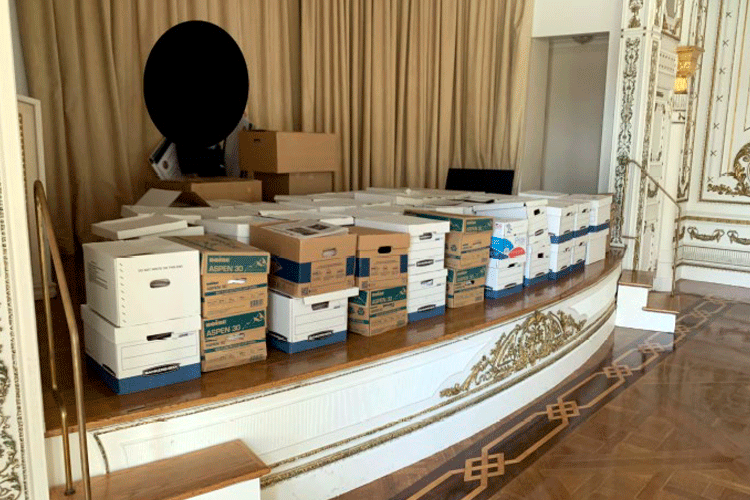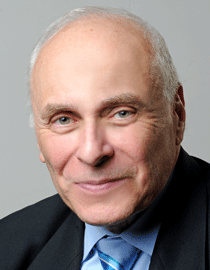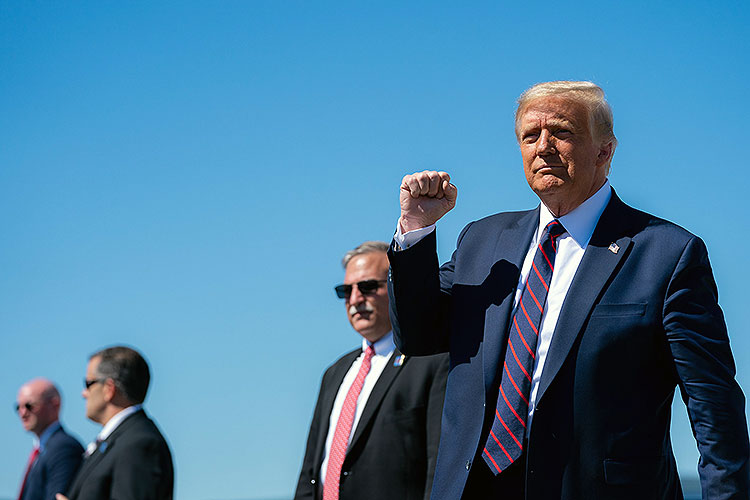Trump Documents Case ‘A National Security Issue of the First Order,’ Scholar Says

Analysts and pundits have treated the investigation into Donald Trump’s stash of top secret documents as a high-level administrative conflict, turning on questions of presidential rights and related political implications. But in the view of an influential UC Berkeley policy expert, Trump has created unprecedented risks to U.S. security.
Michael Nacht, professor emeritus at the Goldman School of Public Policy, in an interview characterized the former president’s handling of classified documents as “a national security issue of the first order.” He sees a plausible scenario in which Trump shared classified information with other governments, including Russia’s.

“This is so far beyond anything that any human being has ever done at the highest levels of the U.S. government with classified information,” Nacht said, just hours after the June 9 indictment was handed up by a federal grand jury. “It requires very special attention by the government.”
The U.S. Department of Justice on Friday unsealed a 37-count indictment of the former president, charging that he improperly took hundreds of secret documents — some of them related to U.S. nuclear weapons operations and defense vulnerabilities — and kept them in unsecured bathrooms and storage areas at his Florida home. The indictment also accuses Trump of obstructing the government’s efforts to retrieve the documents. If found guilty, he could face a lengthy prison sentence.
Nacht served as a high-ranking defense policy official under President Bill Clinton, participating in five presidential summits with Russian and Chinese leaders. Under President Barack Obama, he served as assistant secretary of defense and chaired a NATO panel that set the alliance’s nuclear weapons policies.
He also has served in top U.S. academic positions, including a decade as dean of the Goldman School.
The Berkeley News interview with Nacht has been lightly edited for clarity.
Berkeley News: Going back in time — before the indictment, as the case was emerging — what was your impression of the behavior of former President Trump in holding on to these documents?
Michael Nacht: “I had a security clearance for 30 years, including top secret and other high-level clearances. And it was known from the beginning — and you’re told many, many times — that you’ve got to zealously guard the security of these documents. And when you’re finished working, they must all be surrendered to the government, to the National Archives.
“He must have gotten the same briefing many times, but he just didn’t think it ever applied to him.”
A lot of critics of this case, and a lot of the press coverage, seem to characterize this as a high-level administrative dispute, a dispute about documents, about whether or not a former president has the rights to keep these.
“There’s no dispute. Everyone in the government, including the president, must return all classified documents before they leave office. End of story. There’s no dispute about the fact that he did it. He kept a whole bunch of them in Mar-a-Lago and other places. It was against the law.”
As you’ve watched this case unfold, and given your experience, do you have any sense of Trump’s motives in keeping these documents and even apparently shielding or hiding them from government?
“It’s hard to know his motives. But my impression is, first of all, he’s very concerned about financial profit from anything he does.
“He doesn’t do anything much unless there’s a profit motive for him and his family. So, I would think he may have seen a way to use those documents — to sell them or share that information with others in order to gain financial profit.”

And so, rather than an administrative dispute, or rather than a legal dispute about possession of documents, does this become a threat to national security? Is that how we should be looking at it?
“I think so, absolutely. The documents that were provided to Trump, documents that he held on to, are documents that articulate some of the top secrets in the U.S. government about other governments, about their military capabilities, about our plans in the event of war to engage them. These are all high-level national security issues.
“The fact that he had them and kept them loosely in various rooms of Mar-a-Lago, which of course is not a secure facility, indicates that it’s absolutely a national security issue of the first order.”
Do you see it as a national security case only in concept, or have the actions of the former president created substantive security risks for the U.S.?
“My view is that he’s 100% injected risk into the national security profile of the U.S.
“He’s kept highly sensitive information in places that could have been shared with many of the people from the U.S. and from other governments. And none of that was supposed to be done with these documents. Access to this information has to be allowed on a need-to-know basis. If you don’t have the need to know, you don’t have access to that information.”
A persistent theme during the Trump presidency was his closeness to Saudi Arabia, as you mentioned, and his closeness to Russia and other countries. Do you have any concern that he would have shared these documents broadly with foreign governments? Or is this conspiracy thinking?
“There’s no way to know for certain unless we have evidence. But my impression would be that, yes, he would share this information with leadership of the Russian government, the Saudi government, and others with whom he had special arrangements, including financial arrangements.”
That’s more than a little risk that he would have injected into U.S. national security.
“Absolutely. This is all unprecedented — it’s never been done before. No one has ever done this before until Donald Trump.
“There have been many people who shared sensitive classified information, and they’ve been in jail. If I had done anything close to this, I wouldn’t be talking to you now. I’d be in jail.
“So it’s just the magnitude, the scope of his activities and probably the sensitivity of the documents, including the possibility of attacking Iran. If it’s documented, this would show an extraordinary lack of a willingness to abide by the most sensitive national security laws of the United States.”
I can’t help but wonder what friendly governments and allied governments are thinking right now. Countries with whom we share intelligence on a regular basis — how do they react to this?
“I don’t know in great detail, but I’m sure they must be very concerned. Among other things, Trump may have revealed information to other governments about espionage activities by these governments, by our allies against potential adversaries.
“In other words, he’s leaking out information that’s of the highest sensitivity. So, they’ve got to be concerned about whether the U.S. is a trustworthy ally.”
Some analysts argue that the Department of Justice didn’t need to be so aggressive, didn’t need to take such a high profile with this investigation, that they could have worked it out with the Trump camp more quietly. How do you respond to that argument?
“I think that’s a completely unjustified argument. As I understand it, he was given written notification four months after the end of his presidency to turn over all documents — every single document — to the National Archives. And he didn’t do it.
“He not only didn’t do it, he obstructed their ability to collect information. He hid documents, and he misled people about what he was doing with the documents.
“This is so far beyond anything that any human being has ever done at the highest levels of the U.S. government with classified information. And so it requires very special attention by the government.”
Do you have any closing thoughts?
“This is a very unfortunate situation. And of course it only exacerbates the political divisions within the country. But I don’t think there’s anything we can do other than to prosecute to the full extent of the law.”
